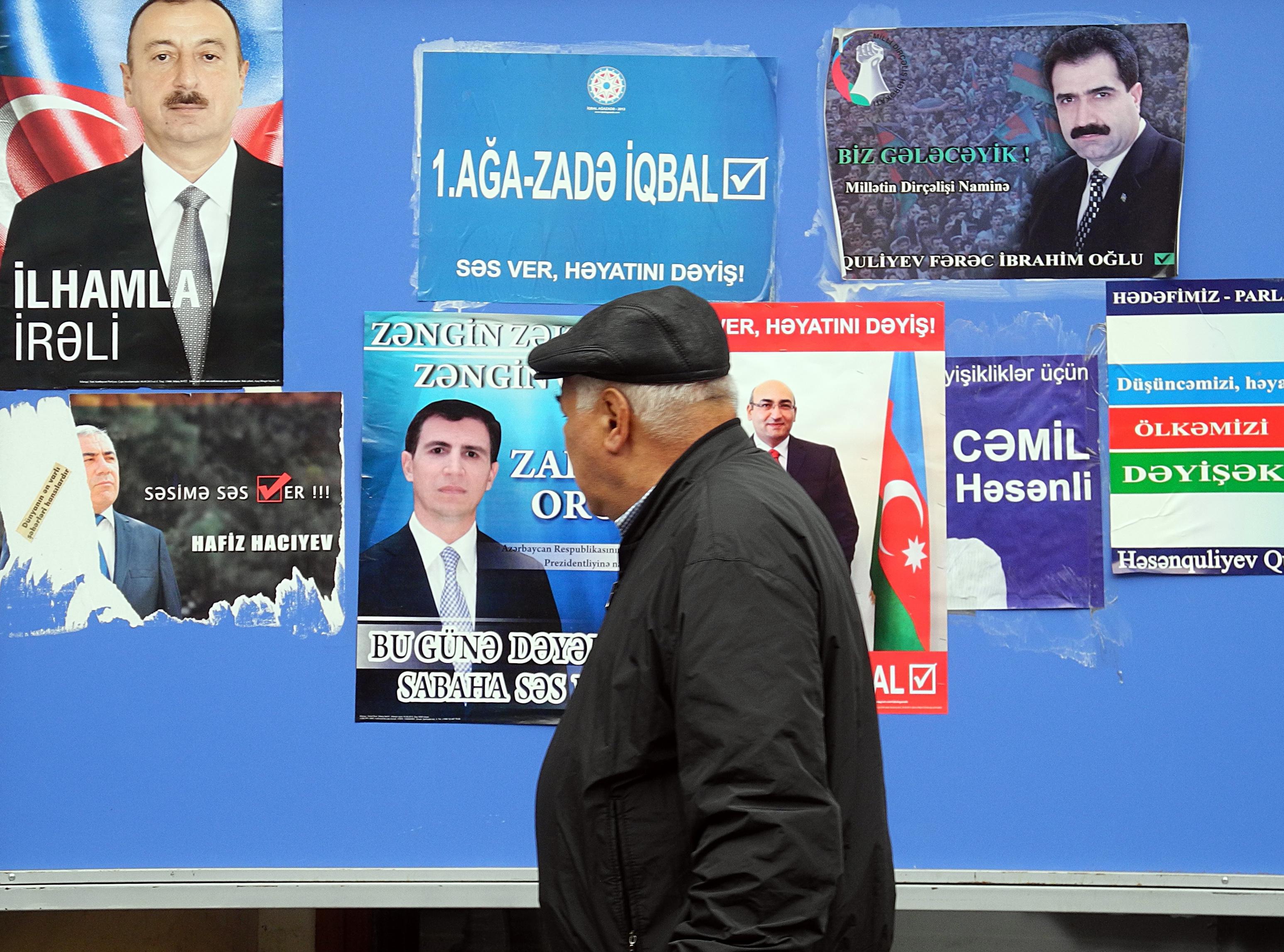As the Washington Post’s Max Fisher explained yesterday, Azerbaijan has come in for quite a bit of international mockery since a smartphone app released by the country’s Central Election Commission showed longtime president Ilham Aliyev winning with 72.76 percent of the vote… a day before the election.
The app’s developer didn’t really help his cause by claiming that they had accidentally sent out the results from the 2008 election, given that the app featured this year’s candidate names and completely different numbers. All the same, the story, which was first reported by opposition media in Azerbaijan, seems a bit too good to be true.
There were undoubtedly serious flaws with the vote. OSCE observers reported “clear indications of ballot box stuffing in 37 polling stations” and problems with counting at 58 percent of them. But I think incompetence on the part of the app developer seems more likely than the way many readers seem to be interpreting this story—that the government had planned the exact results in advance and accidentally released them early.
In any event Aliyev actually did better in the final results, scoring 84.6 of the vote. The runner-up, opposition candidate Jamil Hasanli, who had 7.4 percent of the vote on the app, wound up with only 5.5 percent in the official returns.
Azerbaijan generally falls into the category of governments that try to at least make their elections look like they could be credible, as opposed to the Kim Jong Ils and Saparmurat Niyazovs of the world who just run unopposed and give themselves over 99 percent. But often, making an unfair election look like it could have been fair can be even harder than just making up numbers.
Vladimir Putin and his United Russia party typically win Russian elections with high but plausible percentages in the 60s. But in Chechnya, a place where Putin waged a brutal war against insurgents in the late 90s and early 2000s, local Kremlin-backed strongman Ramzan Kadyrov likes to serve up win totals like 99.48 percent. In 2011, one Chechen polling station reported a turnout of 107 percent.
Sometimes the problem comes not from overenthusiastic local authorities but from the man at the top being a bit too forthcoming. Belorussian dictator Alexander Lukashenko claims to have rigged the 2006 election by lowering his total from 93 percent to 83 percent because “when you get over 90, this is not accepted psychologically.”
Whether or not the app was actually releasing early results, it was at least symbolic of just how pre-ordained this election looked to most Azeris. Perhaps the Azeri government’s pre-cogs can give some pointers to the Turkish police, who are now apparently authorized to arrest protesters before they start protesting.
